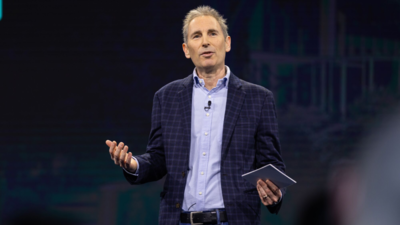
Amazon CEO Andy Jassy addressed the company’s 14,000 layoffs for the first time this week, and his explanation has deepened anxiety in a workforce already unsettled by automation. Speaking during the company’s quarterly earnings call, Jassy said laying off those employees was about a mismatched cultural fit—and nothing else, reports Fortune. Jassy insisted that the move was “not really financially driven.”But the context surrounding these cuts suggests something more complex. The roles eliminated were largely in mid-level management, and the company has previously pointed to AI-enabled efficiencies as a reason for needing fewer people in such positions. The message being sent is one the global workforce is hearing loudly: if you can’t thrive in an AI-powered environment, you may no longer fit.
Companies call it culture, workers see automation
Businesses around the world are restructuring at high speed, and artificial intelligence is at the center of this shift. Companies champion productivity, agility and flatter hierarchies, but the result for many workers is increased uncertainty about their place in the future.A new McKinsey 2025 AI survey finds that organizations are rapidly increasing hires for data scientists, machine learning engineers, and even AI compliance and ethics officers, highlighting a dual reality — while some jobs disappear, highly specialized roles emerge in their place. Workers who are not positioned to move into these new roles face growing vulnerability.And the concern is widespread. According to a recent LinkedIn study, 60% of global workers expect AI to significantly change their job requirements by 2026, and 45% are actively seeking retraining or upskilling to remain employable. The AI wave is no longer abstract — millions feel it hitting the shore of their own careers.
The shrinking middle of the career ladder
Professional life used to reward loyalty, gradual growth, and supervisory experience. But the pandemic-era hiring boom now appears to have produced a layer of roles companies see as expendable. Tasks that once required teams of people are increasingly supported by automated tools and streamlined workflows.The result is a career landscape where the middle is collapsing. People who once imagined steady progression are now forced to continuously prove they can adapt and innovate — without the safety of time or hierarchy protecting them. The “cultural fit” language Jassy used signals a new expectation: workers must match the speed and focus demanded by AI-driven operations.
Students entering a world of constant reinvention
Today’s young graduates will build careers in a world where job security is temporary and skills expire fast. A degree may open the door — but staying inside that door requires ongoing transformation. Upskilling has shifted from a bonus to a necessity.Education systems now face a question that corporations have already answered:Are we preparing people for jobs that exist, or for jobs that will constantly evolve?
A future driven by efficiency and uncertainty
Jassy frames Amazon’s layoffs as a cultural correction — a way to stay lean and move fast. But for workers worldwide, the episode symbolizes a much bigger shift. AI isn’t just changing how companies operate. It’s changing who gets to belong in the workplace.The cultural reset underway at Amazon may not be about the robots replacing humans outright. It may be about reshaping the workforce to mirror the traits of AI itself — fast, efficient, always learning, and never standing still.For workers everywhere, that raises a question no performance review has ever prepared them for: In the age of automation, what makes a human the right fit for the job?






